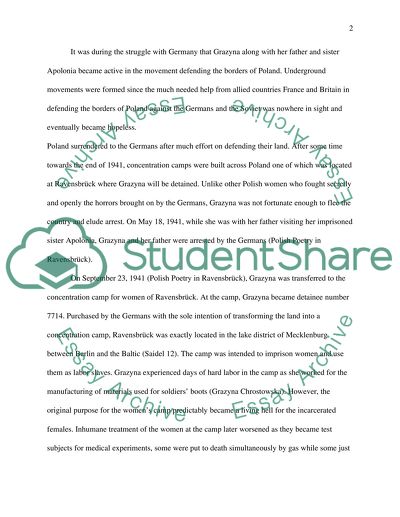Cite this document
(“Women Heroes of World War II: Grazyna Chrostowska Article”, n.d.)
Women Heroes of World War II: Grazyna Chrostowska Article. Retrieved from https://studentshare.org/history/1438025-grazyna-chrostowska
Women Heroes of World War II: Grazyna Chrostowska Article. Retrieved from https://studentshare.org/history/1438025-grazyna-chrostowska
(Women Heroes of World War II: Grazyna Chrostowska Article)
Women Heroes of World War II: Grazyna Chrostowska Article. https://studentshare.org/history/1438025-grazyna-chrostowska.
Women Heroes of World War II: Grazyna Chrostowska Article. https://studentshare.org/history/1438025-grazyna-chrostowska.
“Women Heroes of World War II: Grazyna Chrostowska Article”, n.d. https://studentshare.org/history/1438025-grazyna-chrostowska.


